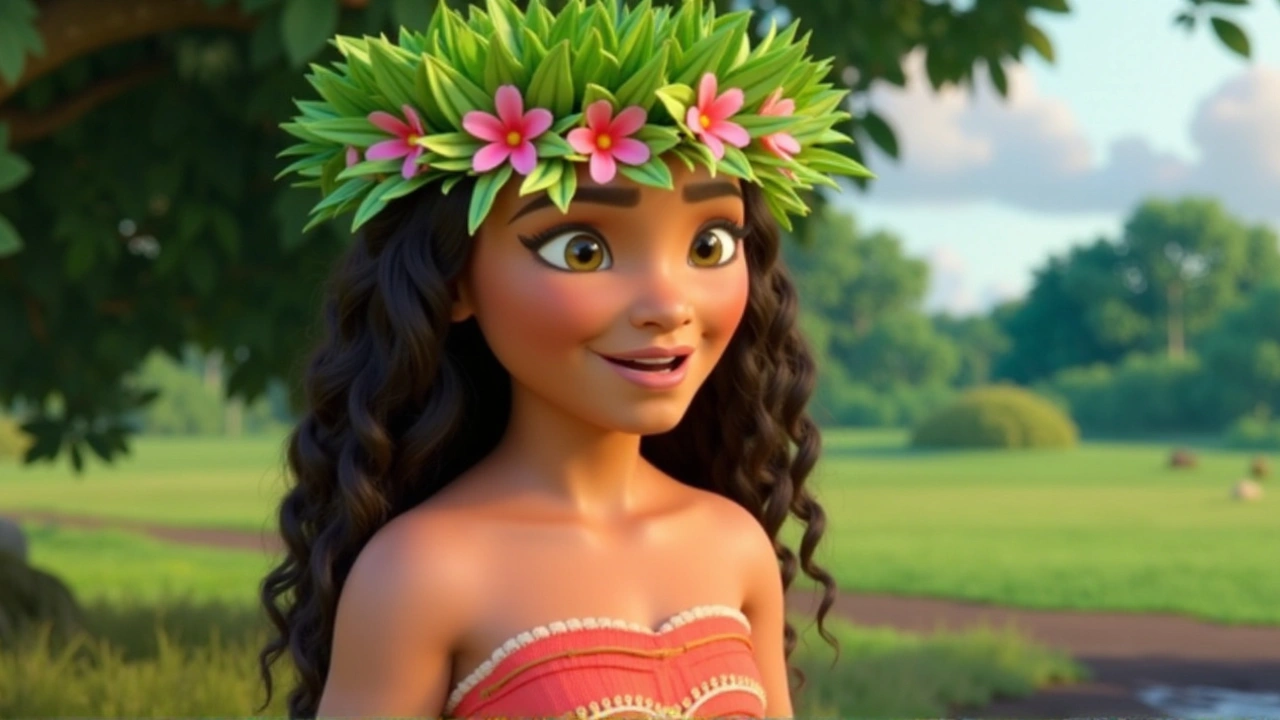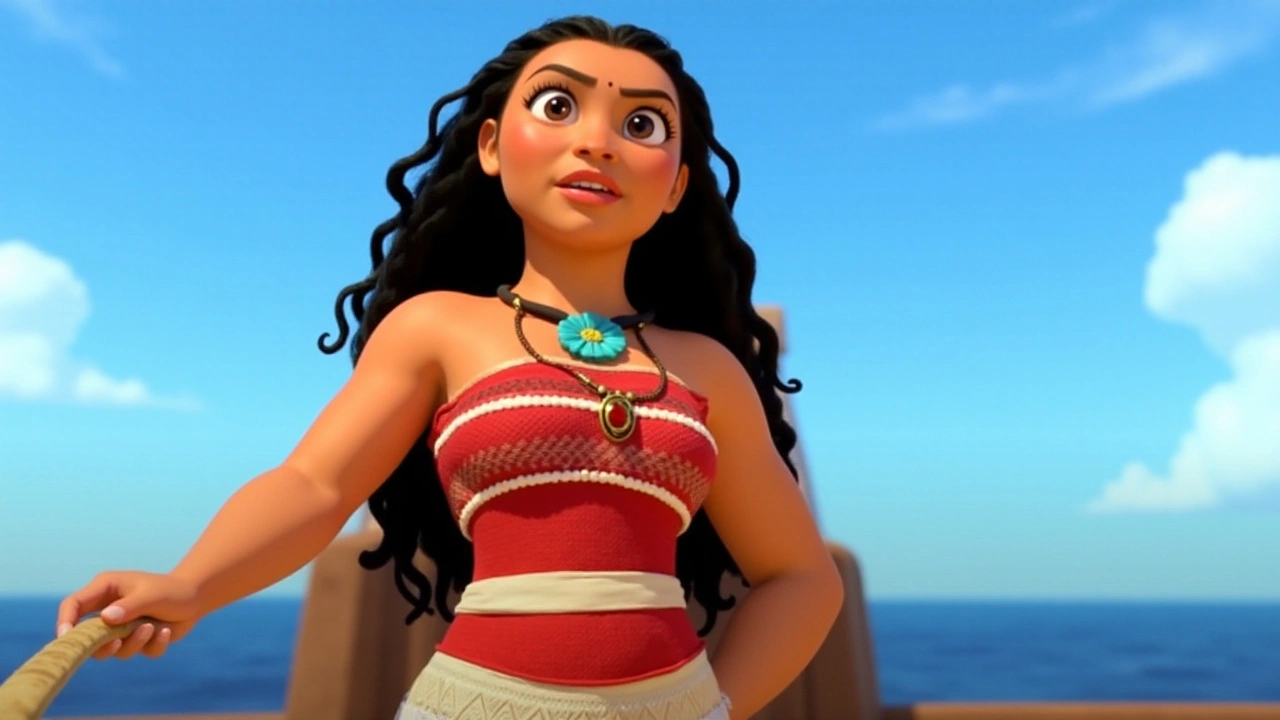
The Origins of the Moana Sequel Hoax
Recently, a series of claims about Disney's much-loved movie 'Moana' started circulating on social media, suggesting a wild turn in its storyline. According to these claims, the titular character Moana would transform into a male character named Kai in the sequel, with the storyline deeply rooted in a transgender transition narrative. Such statements, alluring and controversial, soon caught fire online, capturing the attention of thousands. However, what many did not realize is that these claims were purely fictitious, originating from a satirical website called Mouse Trap News.
Mouse Trap News, self-described as "100% Fake" and akin to "The Onion" but for Disney news, has a reputation for concocting fictional reports solely for entertainment. Yet, this satirical entry fooled many, blurring the lines between satire and perceived truth. Its viral post featured a concocted video and images suggesting grand transformations in Moana's storyline. Despite being baseless, this disinformation successfully played into the conjecture, multiple layers of conversation, and sensitivity around topics like transgender narratives, leading to numerous individuals sharing and reacting to it in good faith.
Understanding Mouse Trap News: The Satirical Spin Doctors
In today's digital landscape, satire and parody often risk being misinterpreted as real news. Mouse Trap News, the source of the Moana sequel hoax, plays a masterful game of tongue-in-cheek storytelling that regularly goes viral. Their self-identification as “The Onion of Disney News” underscores their quest to entertain through misinformation. Almost humorously, their acknowledgement of being "100% Fake" seemed to have slipped past a significant number of audiences who take digital headlines at face value. This highlights a critical lesson regarding media literacy: not everything online is as it seems, and even the boldest claims can lack credible backing.
The website thrives on the platform's evolution and dissemination of stories, relying on vibrant cinematic iconography and text. Although harmless in intent, their stories resonate for being controversial and bold. Indeed, a sizable portion of their crowd found humor in the outlandishness of the narrative. Yet, the allure of a polarizing storyline also led to a rise in concerned fans who took the narrative to heart, igniting a wave of public reactions, vows of boycott, and discussions around societal representation on screen.
Impact of the Hoax: Social Media's Role in Amplification
The immense reach of the fabricated Moana sequel story is a testament to the power and pitfalls of social media in today's age. The post gathered impressive engagement metrics, racking up over 800,000 views and more than 60,000 likes. Such numbers demonstrate how quickly messages—regardless of veracity—can spread across platforms and become intertwined within public consciousness.
Users across multiple corners of the internet were not only sharing the story but also debating its merits, potential implications, and authenticity. Some individuals were quick to sound alarms on the fictitious shift in Moana's character arc, creating ripples of fervor that only added to its virality. The situation underscores the complex dance between satirical content and audience perception, reminding us that digital communities harbor diverse groups of readers with varying levels of skepticism and media literacy.

Setting the Record Straight: Disney's Actual Plans
In reality, there have been no official announcements or confirmations from Disney regarding a transgender storyline in any upcoming Moana sequel. While Disney has made strides in diversifying its character representations and storylines, the specific tale purported by Mouse Trap News remains fictional. The genuine sequel to the beloved 2016 film, titled 'Moana 2,' is indeed in production, with a scheduled premiere date of November 27, 2024.
This continuation of Moana's journey is set to reunite fans with original stars Auli'i Cravalho, who voices Moana, and Dwayne Johnson, who voices the mighty demigod Maui. However, concrete details regarding the plot, character developments, or thematic elements are yet to be disclosed by Disney officially. Hopes are high among fans that the sequel will retain the charm, adventure, and cultural integrity that made its predecessor a phenomenon worldwide.
The Lesson Learnt: Navigating Satirical Claims
The episode surrounding Moana’s alleged gender transformation storyline in a sequel serves as a reminder for audiences to tread carefully when consuming digital content. Satirical sites like Mouse Trap News indulge in imaginative storytelling that borrows from and parodies real-world media formats, yet their intent is humor rather than actual journalism. To avoid being swept away by false currents, audiences should consult reliable sources and pause for scrutiny before accepting sensational information.
In light of this viral mix-up, it showcases the criticality of remaining skeptical of eye-catching headlines. Amidst a digital landscape rich with varied content, the ability to discern factual reporting from satire remains more essential than ever. As the globe continues to pivot towards virtual engagement, so do these amplified interactions with media narratives, making the task of distinguishing between fiction and reality an ongoing challenge for online communities.
Digital Literacy: Finding Truth Among Fiction
Fostering stronger digital literacy is a multifaceted effort that demands collective awareness, education, and engagement. As creators like Mouse Trap News continue to curate parodic spins on culturally significant narratives, it is imperative for each reader to hone skills to evaluate sources critically. By so doing, it ensures that each thrilling piece of news is assessed with both the thrill it pursues and the truth it genuinely reflects.
Ultimately, as platforms evolve and voices across the web diversify, nurturing an ecosystem where information is received, processed, and shared responsibly remains a shared goal. This modern-day fable surrounding Disney's Moana serves, not merely as entertainment, but as an emblematic touchstone for lessons on perspicacity, information discernment, and the wonderful art of storytelling itself.